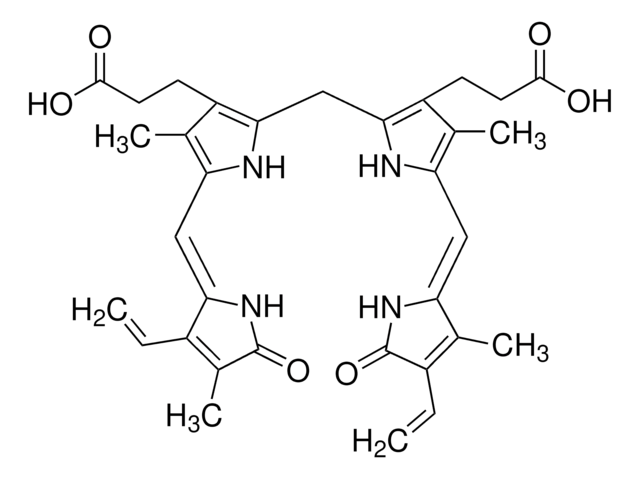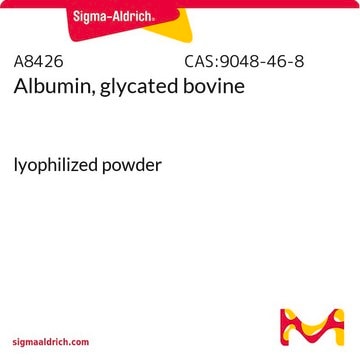A8301
Albumin, glycated human
lyophilized powder
About This Item
Productos recomendados
biological source
human
Quality Level
assay
90-100% protein basis (biuret)
form
lyophilized powder
extent of labeling
1-5 mol hexose (as fructosamine) per mol albumin
technique(s)
cell culture | mammalian: suitable
UniProt accession no.
storage temp.
−20°C
InChI
1S/C3F8/c4-1(5,2(6,7)8)3(9,10)11
InChI key
QYSGYZVSCZSLHT-UHFFFAOYSA-N
Gene Information
human ... ALB(213)
General description
Application
- as a component of serum-free medium for retinal microglia activation
- to stimulate immortalised proximal tubule epithelial (HK-2) cells for fibronectin production
- as medium supplement in human retinal microvascular endothelial cells (HRMECs) cultures to test its effect on family with sequence similarity 18, member B (FAM18B) expression
Biochem/physiol Actions
Physical form
Preparation Note
Other Notes
Disclaimer
Storage Class
12 - Non Combustible Liquids
wgk_germany
WGK 2
flash_point_f
Not applicable
flash_point_c
Not applicable
Certificados de análisis (COA)
Busque Certificados de análisis (COA) introduciendo el número de lote del producto. Los números de lote se encuentran en la etiqueta del producto después de las palabras «Lot» o «Batch»
¿Ya tiene este producto?
Encuentre la documentación para los productos que ha comprado recientemente en la Biblioteca de documentos.
Los clientes también vieron
Nuestro equipo de científicos tiene experiencia en todas las áreas de investigación: Ciencias de la vida, Ciencia de los materiales, Síntesis química, Cromatografía, Analítica y muchas otras.
Póngase en contacto con el Servicio técnico











